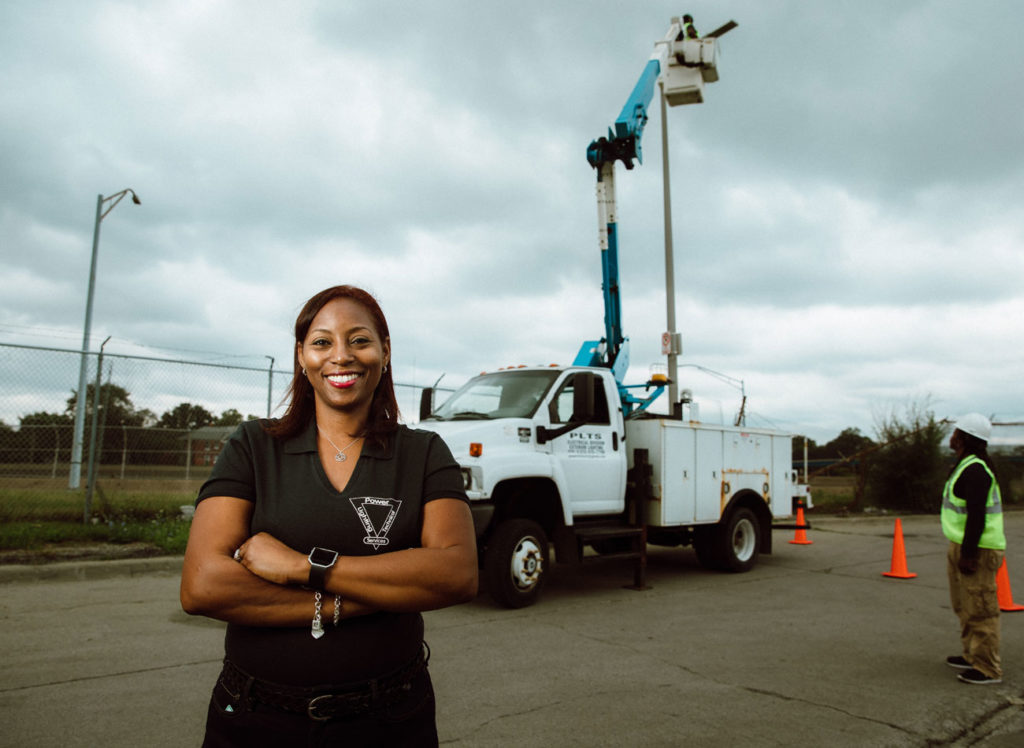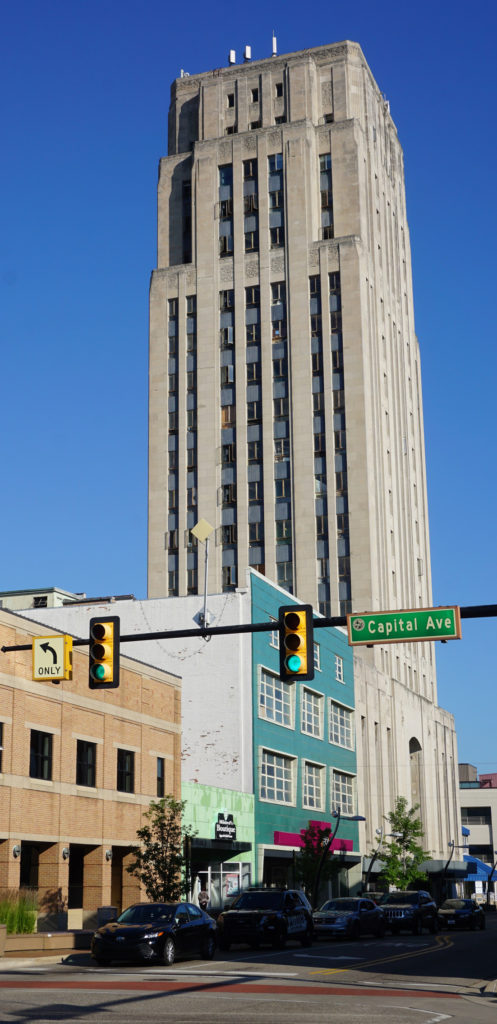

She’d been a customer for more than a decade and had a successful, eight-year track record as owner and operator of Power, Light and Technical, an electrical contracting firm with revenues of roughly $1.5 million last year.
Her business was growing and the opportunities in Detroit were coming fast and furious. She needed capital to stay competitive.
Undeterred, Paris turned to the Entrepreneurs of Color Fund (EOC Fund), established in 2015 by the W.K. Kellogg Foundation and JPMorgan Chase to provide financing and technical assistance to Detroit-based business owners like Paris. Through the fund, Paris secured a $200,000 line of credit, which she describes as “a game changer” for her business.
“We have been able to purchase specialized equipment and also pay suppliers even when we are waiting to get paid, which as a contractor is tremendously important. We haven’t had to turn down a contract since getting our line of credit. In fact, we have grown to eight full-time employees.”
Paris is one of many entrepreneurs of color with a great idea or poised for growth who struggles to secure small business financing. African American, Latino and other entrepreneurs of color experience loan denial rates roughly three times that of other applicants, and if approved, frequently receive lower loan amounts and higher interest rates. According to the Federal Reserve, Black women have more difficulty accessing credit, a barrier making it harder to get the necessary funding for their businesses to grow.
The result is a financing system that perpetuates inequitable access to capital for entrepreneurs of color launching or expanding small businesses. These obstacles persist, despite the fact that half of all new jobs in the U.S. come from small businesses. And research shows that entrepreneurs of color locate their businesses within communities of color and hire employees of color — effectively generating jobs in neighborhoods that often struggle to attract investment.


“We haven’t had to turn down a contract since getting our line of credit. In fact, we have grown to eight full-time employees.”
To illustrate the power and potential of equitable financing, the Kellogg Foundation launched the EOC Fund with a $3.5 million investment and $3 million from JPMorgan Chase. In the past three years, the fund has deployed more than $6 million to 58 businesses in Detroit and has a default rate of less than 2 percent. Ninety-eight percent of the borrowers are people of color and 57 percent are female.
EOC Fund businesses have helped to create or retain 642 jobs in Detroit, many in communities of color that are still working to recover from decades of systemic disinvestment and the city’s bankruptcy. In 2018, the fund hit an important milestone, more than tripling in size to $22 million in only three years. And it is still attracting new investors.
Building on that success, the Kellogg Foundation established a similar fund in the foundation’s hometown of Battle Creek, Michigan. The Battle Creek Small Business Loan Fund is modeled after the EOC Fund. Launched with an initial $1 million investment and contributions from local investors (Battle Creek Unlimited, The Miller Foundation, Kellogg Company and Consumers Energy Foundation), the fund is rapidly growing — up to $6.6 million with a goal of $10 million — and already making loans. Eight small businesses in Battle Creek received loans in 2018.
JPMorgan Chase has also replicated the model with fund launches in additional sites including the South Bronx, Chicago and San Francisco.
According to Paris, the value of the EOC Fund is not only its financing, but also the technical assistance that business owners often need to flourish and is offered by the Fund. “Working with the Entrepreneurs of Color Fund to apply for the loan helped us to put the infrastructure in place around bookkeeping that we need to have.” Today, Paris says, “our business is stronger at its core.”
Share this Story